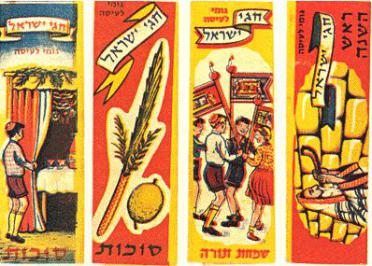Every week, parshaoftheweek.com brings you a rich selection of material on parshat hashavua, the weekly portion traditionally read in synagogues all over the world. Using both classic and contemporary material, we take a look at these portions in a fresh way, relating them to both ancient Jewish concerns as well as cutting-edge modern issues and topics. We also bring you material on the Jewish holidays, as well as insights into life cycle rituals and events...
It is customary during the period of Rosh ha-Shanah and Yom Kippur to ask forgiveness of friends and acquaintances - either because you know you have wronged them, or simply on the off-chance that you might have. The halacha teaches us that although sins between man and God are forgiven, once repented, on Yom Kippur, sins between you and your fellow man or woman are only forgiven if you make restitution, when relevant, and ask - and receive - forgiveness. Here in Israel there is currently a cute example of this: over the past couple of weeks, a cell-phone ad campaign has been touting the many cheap minutes you can get with their plan - so cheap that you will want to call people in places like London and New York and apologize to them for long-forgotten wrongs.
I want to take this opportunity today, the day before Yom Kippur, to ask you to forgive me if I have in any way wronged or hurt you.
I'd also like to share a story my daughter Talia brought home from school the other day. A couple is at home. There is a knock on the door. When the man of the house gets to the door, three old men are standing there. "Who are you?" he asks. "We are success, happiness, and love", they answered. "You may, at the start of the New Year, invite one, but only one, of us to stay with you for the year." The husband went back in and consulted with his wife. After a few moments they made their decision, went to the door, and invited love in. He entered the house, and was followed by success and happiness. "But we thought only one of you would be able to come in and be with us this year", the surprised couple said. "When there is love in the home, success and happiness are sure to follow", the old men responded. When my daughter told us this story at the Shabbat dinner table this past Friday night, we all rolled our eyes. Then we thought about it for a second and stopped rolling our eyes.
I hope you are all inscribed and sealed, with all your loved ones, in the Book of Life, love, happiness, and success.
Rabbi Shimon Felix



Get inspired by Rosh ha-Shanah Divrei Torah from previous years